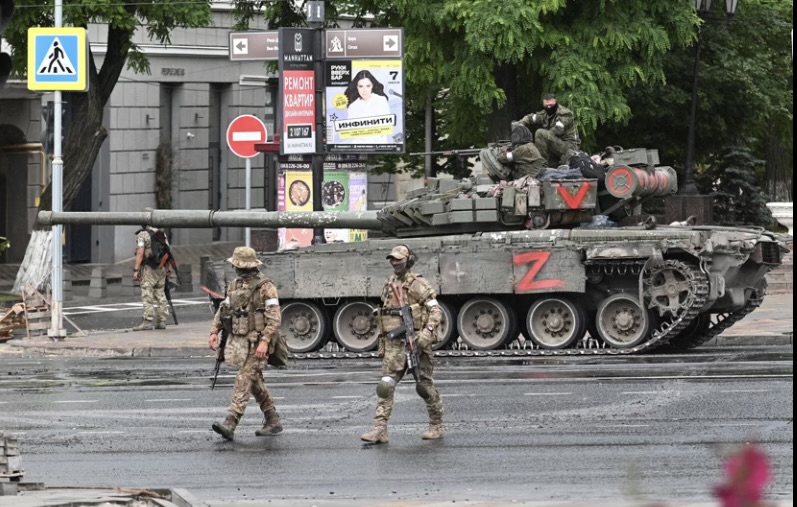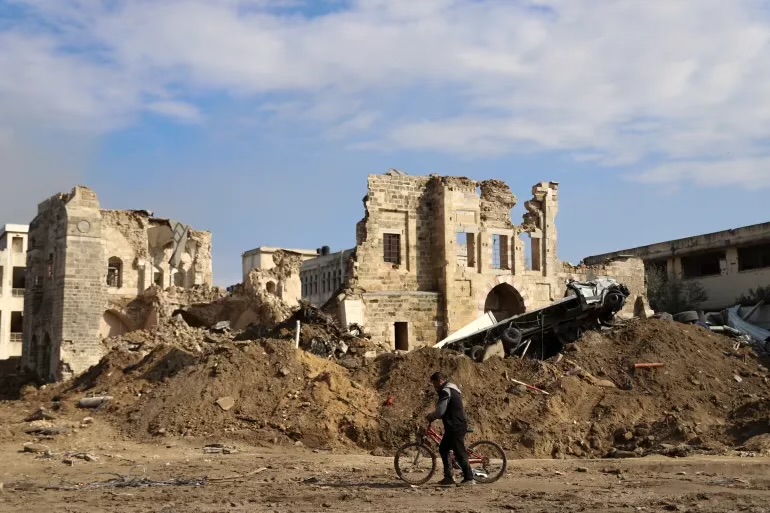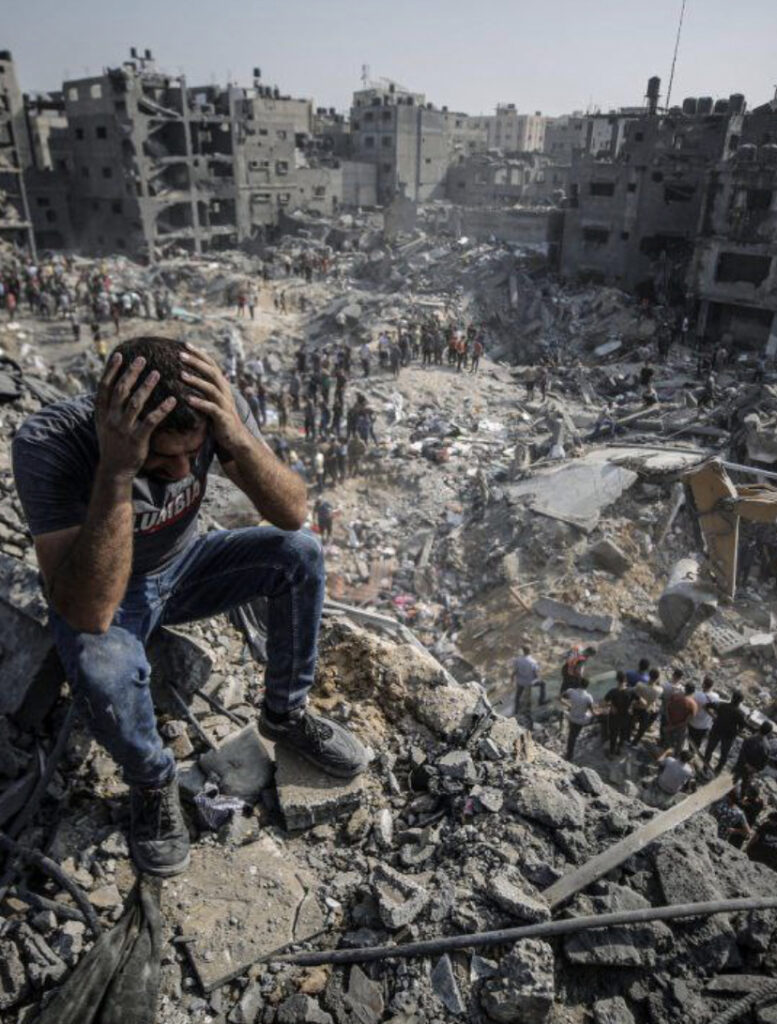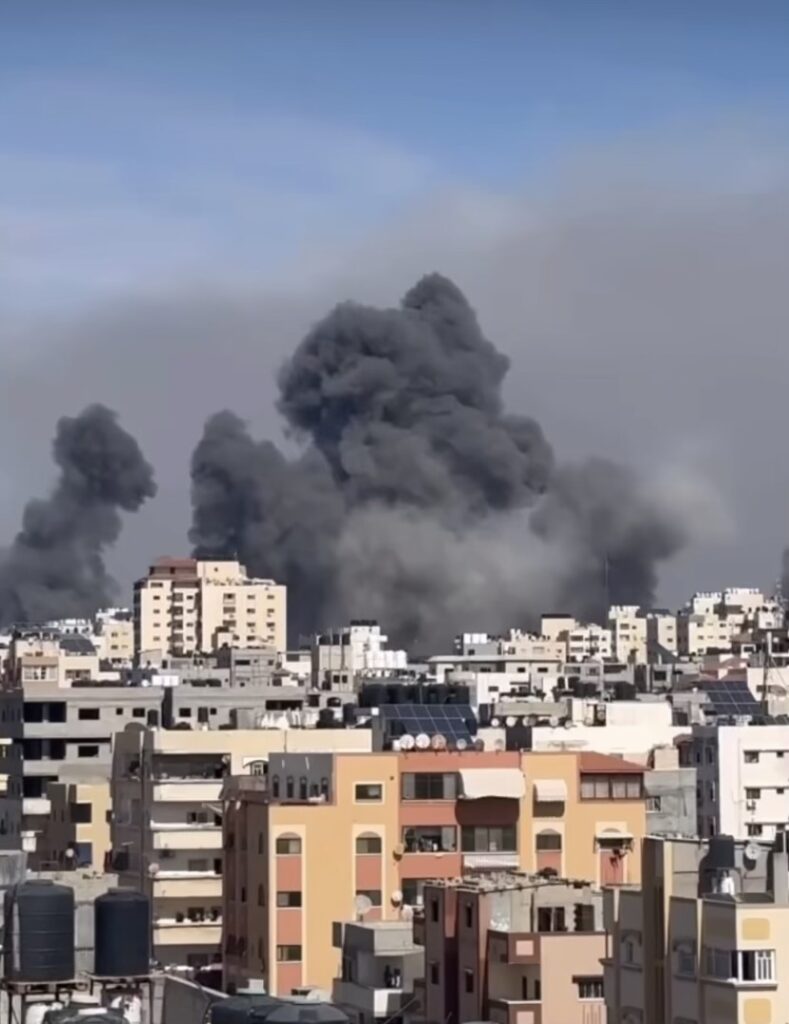On Saturday, June 24, Yevgeny Prigozhin led approximately 5,000 soldiers of the Wagner Private Military Company in an armed insurrection against Russia. Prigozhin is the head of Wagner, which has been hired by Russia to fight alongside them in the Ukraine War. Russia has also hired the group to fight in previous Ukrainian conflicts in the Donbas, as well as conflicts with Islamist insurgents in African nations such as Mali and the Central African Republic. While Prigozhin is not the owner of Wagner, he serves as its figurative leader and public face.
Disputes between Prigozhin and Russia’s Ministry of Defence have been common, with messy incidents of Prigozhin disparaging high ranking Russian officials and threatening to withdraw Wagner troops from key positions. Yet none of the previous incidents compare to Prigozhin’s decision to call upon his troops in what he called a “march for justice.” His statements came after video surfaced of what Prigozhin claimed was a Russian strike on a Wagner camp. Russia has denied such claims and denounced the video as staged, which was later confirmed by a senior U.S. official. Furthermore, Prigozhin laid claims of the Ukraine War being fought under false pretenses, and of high-ranking officials in Moscow working only for their own benefits. According to the previously mentioned U.S. official, Prigozhin’s motivations had more to do with his waning power and troubled financial situation. After Russia annexed and incorporated the territories of Donetsk, Luhansk, Zaporizhzhia, and Kherson, Wagner could no longer be hired to fight in these territories under Russian law. Hence, all Wagner soldiers would then have to register with the Russian ministry of defense in order to continue fighting in Ukraine. Prigozhin considered this a threat to the integrity of Wagner, as well as his own personal power. Analysts and officials from both Russia and the United States point to this as what prompted Prigozhin’s call to arms.
Yet the response to Prigozhin’s rally cry was quite short of what he expected. Approximately ⅕ of Wagner fighters responded to his call to action, and crossed the Ukrainian border to begin their march to Moscow. They occupied the city of Rostov-on-Don, where videos showed Russian citizens apprehensively remaining in the public areas, many taking videos of the Wagner tanks and soldiers with their cellphones. However, there was an absence of Russian citizens who were willing to join the “march for justice.” The same was said for the Russian military, who remained loyal to their ministry of defense.
Russian President Vladimir Putin remained in the Kremlin in Moscow, organizing a response that would weigh heavily on his political reputation as well as the stability and security of the Russian Federation. Anti-terrorist forces arrived in Moscow, the Russian National Guard and Special Elite Forces assembled South of Moscow, and the Chechen Special Forces surrounded the city of Rostov-on-Don. Somewhere around this time a phone call occurred with Prigozhin, Putin, and Belarusian President Lukashenko, who stepped in to assist with de-escalation talks. In the talks Prigozhin agreed to withdraw all of his forces. In return, Prigozhin and all participating Wagner troops would not face criminal charges. However, Prigozhin would be exiled to Belarus, and all participating Wagner soldiers would be banned from serving in or with the military. The remainder of Wagner troops who did not participate would have to either register with the Russian Ministry of Defense, relocate to Belarus, or return to their families. The only casualties that have been confirmed are several Russian pilots, who were killed when their planes were downed by Wagner fire. While any lives lost is still a tragedy, all signs were pointing to a devastating bloodbath.
The agreed-to settlement prompted controversies and discussions on the political ramifications for Vladimir Putin. While the element of subjectivity can never be removed, one can point most importantly to the response and consensus of the Russian people. Vladimir Putin has been, and remains to be the most popular president in Russia’s history. Polling numbers indicate his actions are largely supported by the population, yet many publications have claimed his actions in resolving the mutiny were signs of weakness. However, one large factor of Russian public sentiment is easily overlooked- the Russian people hold great respect for the Wagner organization and its triumphs and accomplishments over the span of 9 years. The patriotism of the Russian people is paramount to their collective identity, and while the mutiny left an ugly stain on the patriotic image of Wagner, it did not leave the Russian people completely ready to denounce them. A show of brute military force by Vladimir Putin would not only have led to the loss of countless lives, but it would not have sat well on the conscience of the patriotic Russian people. While the incident was no doubt a test to the stability of both the Russian leadership and the Russian Federation, it served as a testament to the unmatched resilience of Russia as a people, as a government, and as a national identity.




Hi, this is from the team here at International informants feel free to ask any questions or leave a comment.
Would you please put me on your email list? Im very impressed that you have a wholistic approach to events.
Sure thing!